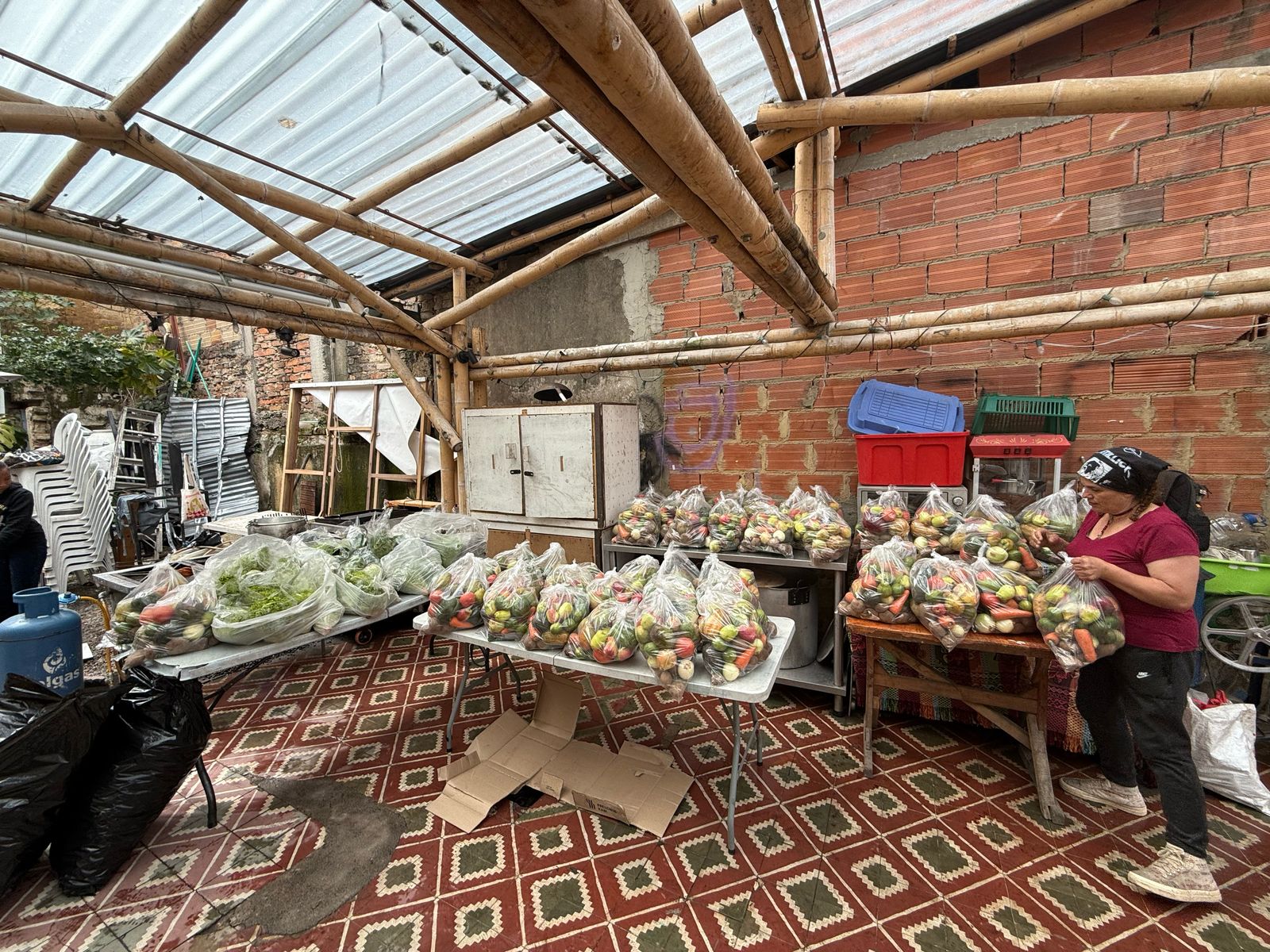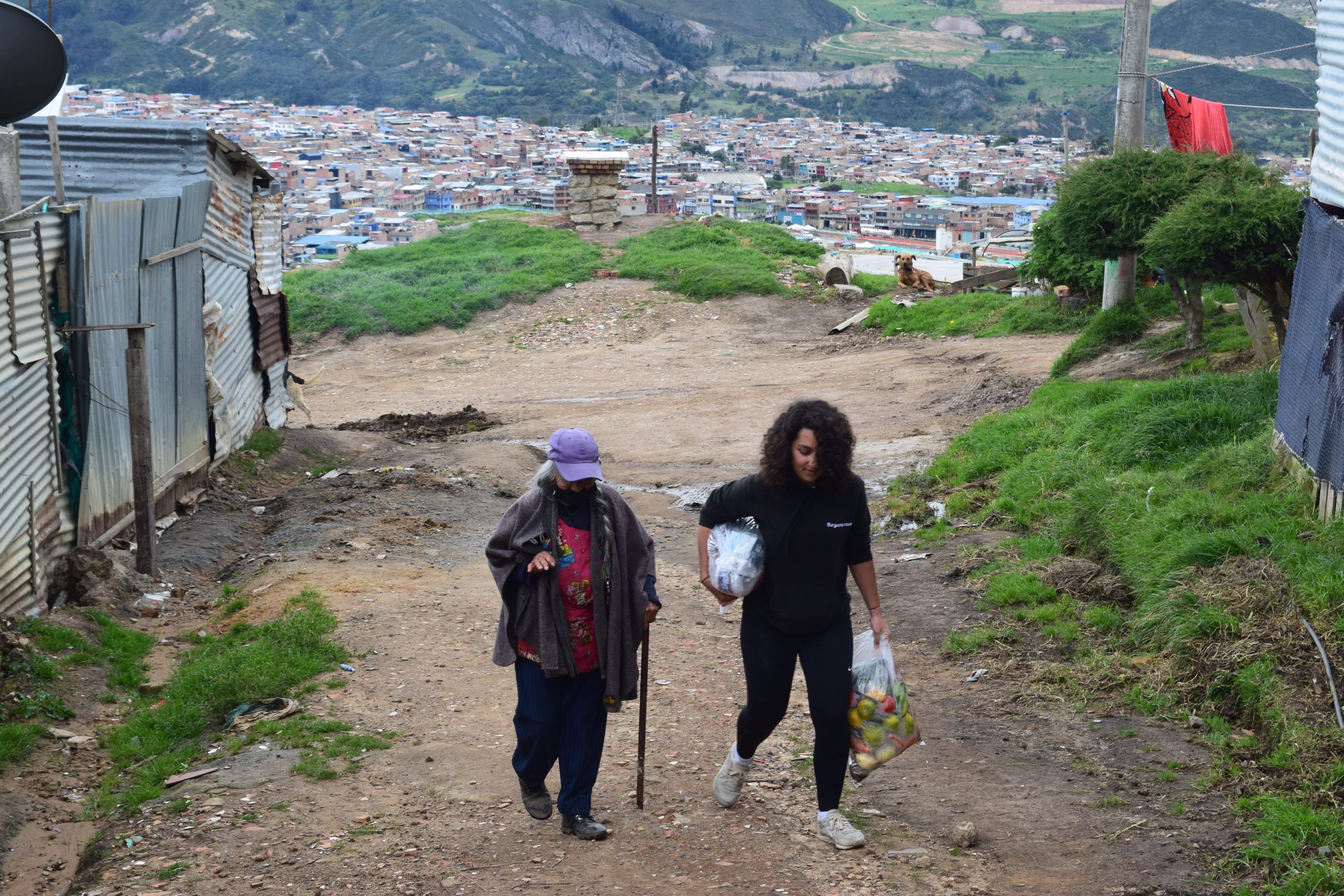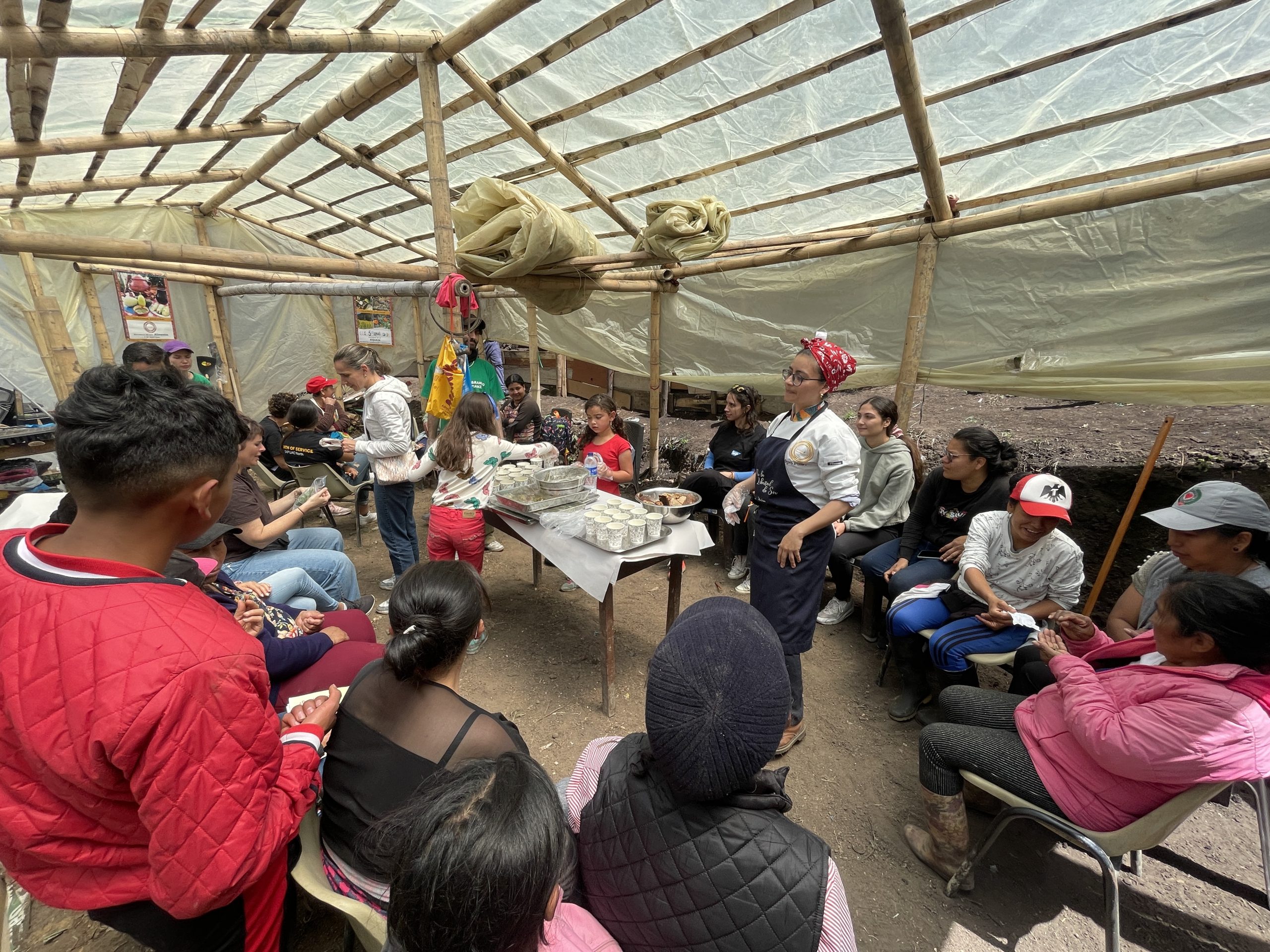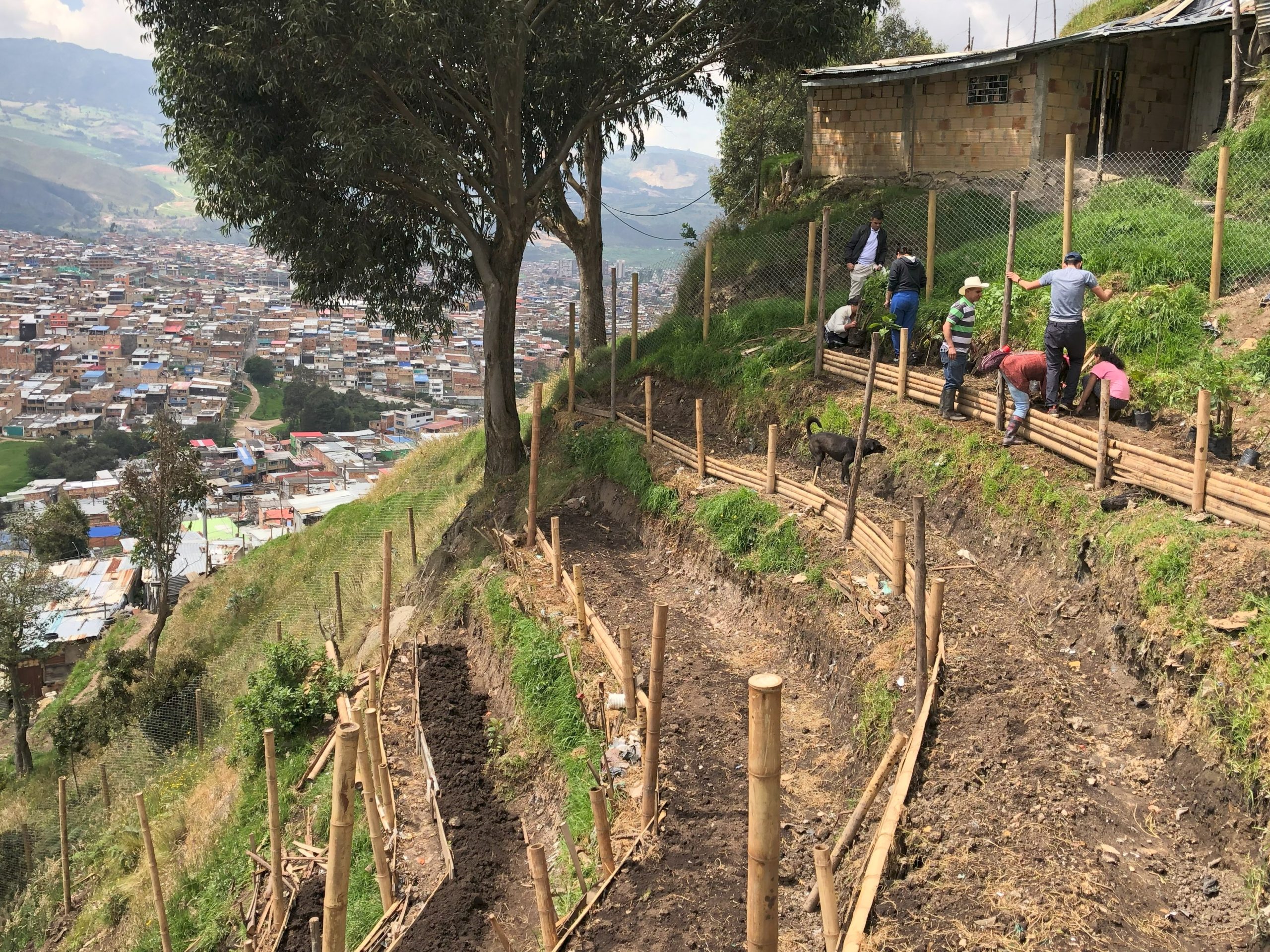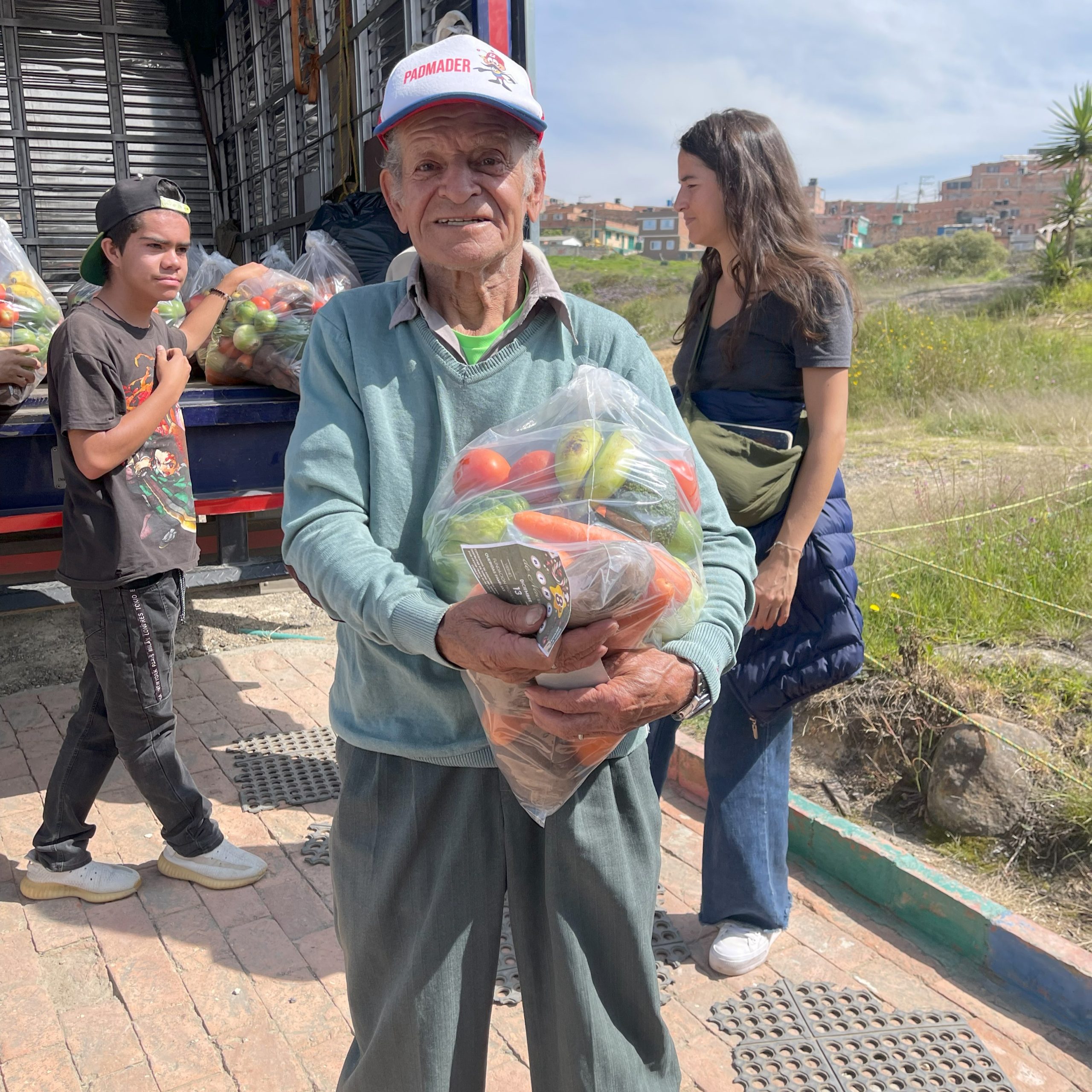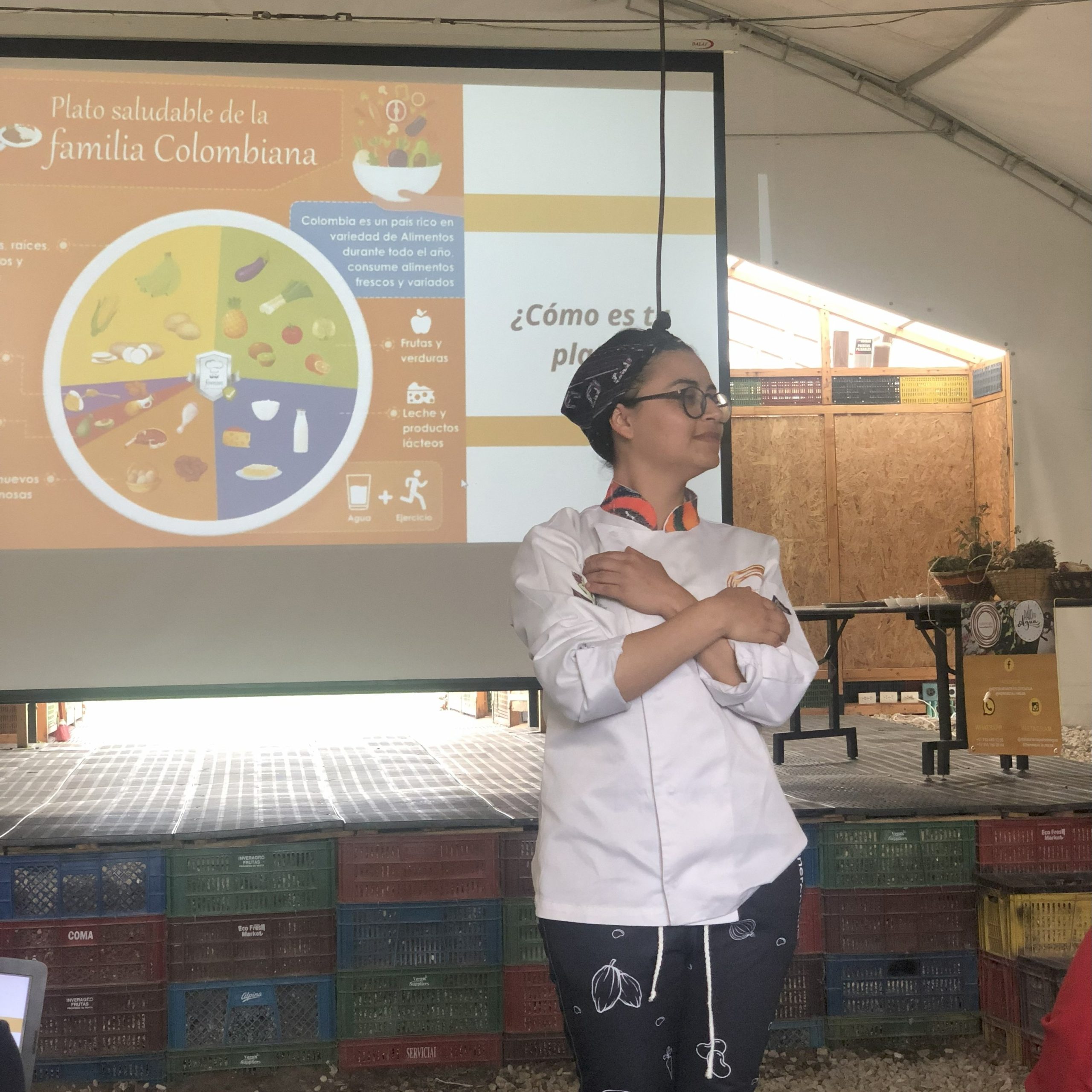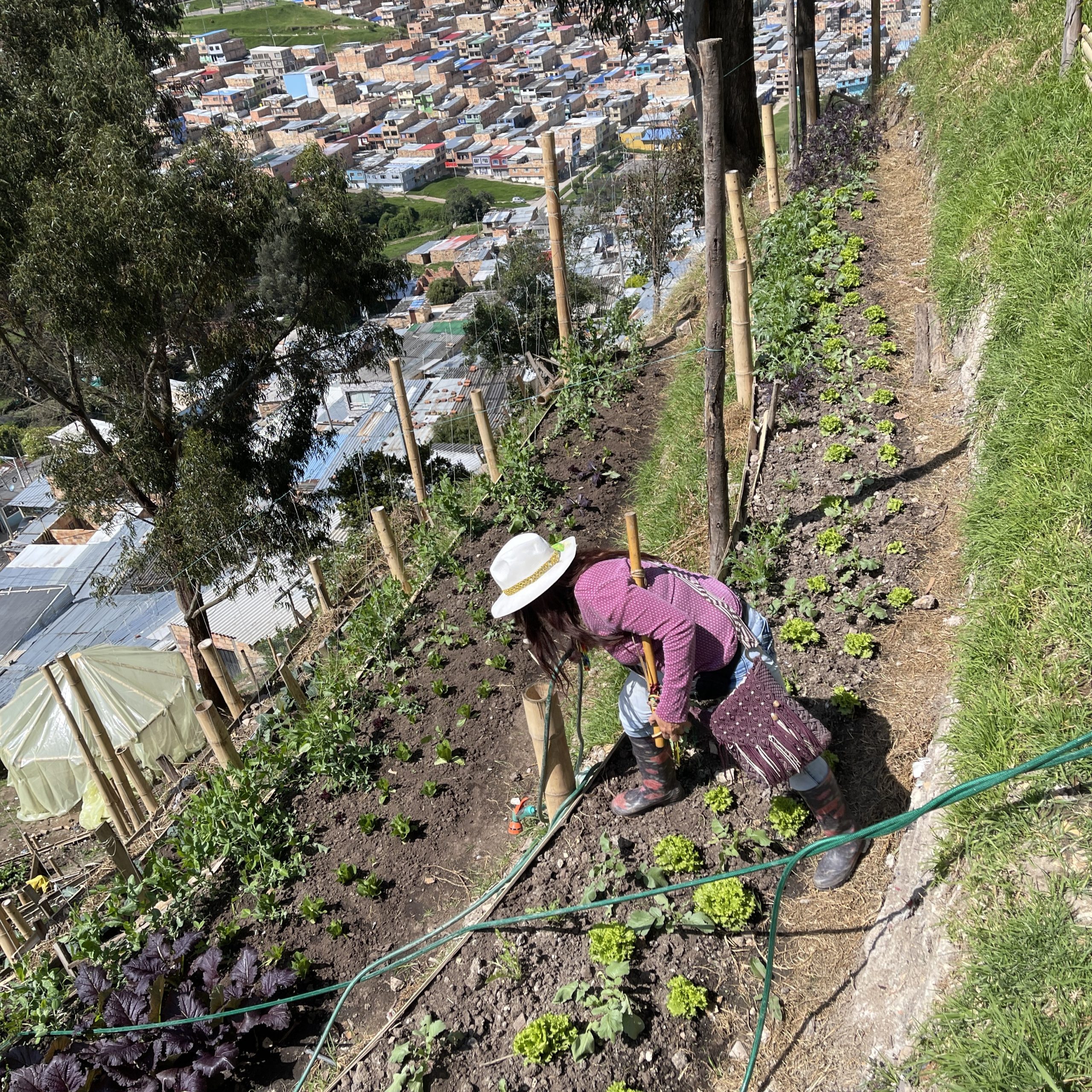From the land to the table: agroecology and solidarity against food insecurity
Colombia
Improving Smallholder producers and urban vulnerable population’s resilience through agroecological supply chains in the region of Bogotá (Colombia).
Lead organization
Proyectar Sin Fronteras (PSF) is a French-Colombian nonprofit organization working since 2007 to improve the quality of life of vulnerable communities in the regions of Cundinamarca and Boyacá (Colombia). PSF promotes agroecological transitions, food sovereignty, and environmental education. As an active member of the Agroecological Markets Network of Bogotá Region, a collective space where we co-developed a Participatory Guarantee System (PGS) to recognize and support local agroecological family farmers. Since 2012, PSF has operated a market called Sembrando Confianza, offering agroecological products from smallholder farming families with home delivery across Bogotá. In 2025, this market merged with another local initiative known as La Canasta, expanding its reach and consolidating its efforts to strengthen short supply chains and fair trade. This strengthens ethical trade relationships, environmental stewardship, and access to fresh, healthy, and agroecological food.
PARTNER ORGANIZATIONS: Agroecological Markets Network of Bogotá Region (RMABR), UniMinuto University, local leaders from the Tocaimita, Bella Flor, and Egipto neighborhoods, and local family farmers.
Main beneficiaries
Urban families in vulnerable conditions, particularly women-led households, migrants, and internally displaced people. Additionally, as the program is connected to other ongoing initiatives within the organization, agroecological family farmers, whose produce was purchased to assemble the baskets, are also beneficiaries.
Country
Colombia
Timeline
The initiative began during the COVID-19 pandemic and has been active from 2020 to the present.
Funding
It has received funding at different stages, through multiple projects, from various sources, including GIZ, Palladium Group, Initiative Teilen, individual donors and private sector partners. Total budget is approximately 40.000 USD.
Mission
One of PSF’s key programs is the delivery of solidarity food baskets in Bogotá, which serve as a bridge between rural agroecological family farmers and urban communities facing food insecurity. This program is rooted in agroecology and solidarity, seeking to connect agroecological family farmers and vulnerable urban communities through solidarity-based food systems that foster access to healthy, culturally appropriate, and environmentally sustainable food. This initiative is part of PSF’s broader, interconnected strategy to promote food justice and agroecological transitions across both rural and urban territories.
Context
Colombia has one of the highest numbers of internally displaced people in the world, with over 5.8 million individuals forced to migrate due to armed conflict, land dispossession, and socio-environmental pressures. Bogotá, as the main arrival point, hosts more than 360,000 displaced persons. Many settle in informal urban neighborhoods marked by precarious housing, unemployment, and limited access to essential services such as potable water, healthcare, and nutritious food. These urban settlements face persistent structural food insecurity. While food is physically available in the city, it is often inaccessible for low-income families due to high prices, lack of infrastructure, and dependence on ultra-processed foods. The COVID-19 pandemic further deepened these inequalities, exposing the fragility of conventional food systems. In response, PSF developed a strategy that brings together agroecological family farmers and vulnerable urban populations.
Strategy
Objectives
- Improve food security and access to healthy, nutritious food for vulnerable urban populations by promoting solidarity-based distribution, nutrition education, and local food systems in the Bogotá region, while simultaneously strengthening agroecological production among family farmers.
Activities
Supporting agroecology production and certification:
- Implement a Participatory Guarantee System (PGS) for family farmers
- Provide capacity-building on agroecological practices, such as soil analysis and the use of bio-inputs
- Develop a commercial strategy for family farmers and Sembrando Confianza market.
Enhancing urban solidarity to reach the most vulnerable:
- Distribute solidary food baskets to the local community in high vulnerability neighborhoods.
- Respond to COVID-19 and structural food insecurity, by giving people access to food.
- Source all baskets from local agroecological farmers.
Promoting food and education nutrition:
- Organize nutrition workshops in different urban communities.
- Collaborate with a nutritionist and a traditional cook to lead cooking sessions focused on using native and traditional crops.
- Promote healthy and balanced diet rooted in agroecology.
- Activate the taste memory using local and ancestral foods from the Andean region.
- Share affordable, nutritious, and culturally relevant home-cooking recipes.
- Encourage participants to recognize the origin of food ingredients, how to access them, and how to prepare them in accessible and sustainable ways.
Mobilizing communities through urban gardening:
- Activate unused urban spaces into a community garden to reunite neighbors around a shared agroecological project and strengthen community trust and ownership.
- Fostered collective trust, ownership, and long-term commitment to agroecological practices in the urban context.
Impacts and lessons learned
Outcomes
- 60 agroecological family farmers supported across 14 municipalities
- 100% of participating farmers obtained PGS certification, reinforcing trust and quality assurance for consumers.
- The new commercial strategy for the market that led to an increase of 200% of clients, and 49% of sales
- Profit-sharing model implemented: 70% to farmers, 30% to Sembrando Confianza market.
- 1542 solidarity baskets distributed reaching 6,168 people and improving food access, leading a greater access to food and an answer to structural food insecurity
- Nutrition workshops were held in four different urban communities.
- One new community garden was created, and three existing gardens strengthened through community involvement.
Lessons learned
This initiative contributed key insights for integrating food assistance and agroecology in urban and rural food systems:
- Food assistance and agroecology can reinforce each other: In contexts where food sovereignty is not yet feasible, solidarity-based actions can foster food security while supporting agroecological values.
- Solidarity baskets are more than aid: They generated reliable demand for local produce, strengthened urban-rural links, and reinforced short supply chains.
- Nutrition education must be contextually grounded: Nutrition is not just about calories, it must highlight local and regional ingredients, cultural knowledge, and the right to access healthy food regardless of income.
- Accessibility is a systemic issue: Agroecological food must not remain a privilege. Inclusive models must combine production, distribution, and education to reach those most affected by structural inequality.
- Complexity is not a weakness, it’s a strength: Agroecology projects can embrace complexity as it is not only about producing differently but also distributing fairly.
Limiting factors
- Logistical and coordination challenges: The delivery of food baskets and the scheduling of workshops required intense coordination between rural and urban actors. Vulnerable communities often depend on daily informal labor for survival, limiting their availability to participate in extended activities.
- Access to land and public support: In urban areas, limited availability of secure land and a lack of municipal support constrained the scaling-up of community gardens and urban agroecology.
The food baskets strengthened our community’s food sovereignty efforts. Access to chemical-free food is not common for vulnerable families, low-income households, and recyclers. On top of that, it’s a huge plus to be able to support local agroecological farmers through this process.
The food deliveries provided short-term relief for many families, especially those who survive through informal street vending and other precarious daily income sources. Access to fresh, and especially agroecological, food is extremely rare in these contexts.
Andrea Gómez Lozano, Project Coordinator, Proyectar Sin Fronteras: coordinadorproyectos@ong-psf.org
Picture credits: Proyectar Sin Fronteras

